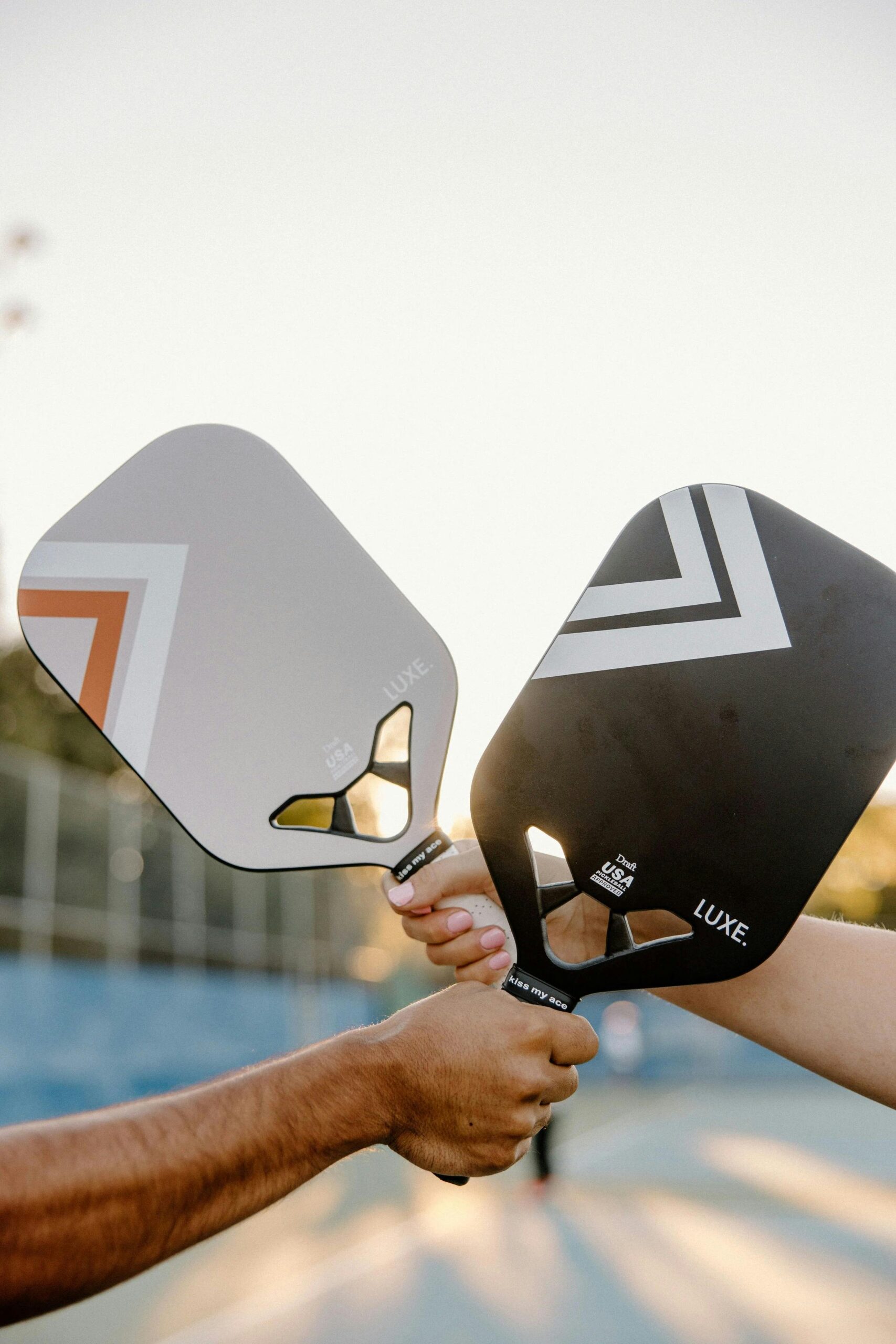When we think about building emotional resilience or improving how we handle stress, we often overlook the role of physical activity — especially social sports like pickleball. But the rhythm and flow of a game can actually provide a powerful natural training ground for our nervous system.
The Window of Tolerance: What Is It?
The “window of tolerance” is a term used in trauma therapy and nervous system science. It refers to the zone where our nervous system feels regulated enough to handle stress, stay present, and respond flexibly. When we’re inside this window, we can think clearly, connect with others, and manage emotions effectively.
Outside this window, our nervous system shifts into survival modes: either hyperarousal (fight/flight) or hypoarousal (freeze/shutdown), where thinking becomes difficult and relationships strain.
Pickleball’s Natural Nervous System Workout
Pickleball is a sport full of quick shifts between moments of high alert and moments of rest. Imagine the sudden jolt of adrenaline when a fast serve comes your way, or the intense focus required during a close rally. Your nervous system is activated — heart rate rises, muscles tense, attention sharpens.
But then, just as quickly, the game pauses. You catch your breath, maybe share a smile with your partner, or wait quietly for the next point. Your body gets a chance to downshift, breathing slows, muscles relax, and safety signals flood your nervous system.
This ebb and flow — activation followed by regulation — mirrors the kind of flexibility our nervous system needs to expand its window of tolerance.
Why Practice Matters for the Nervous System
The nervous system is like a pattern-recognition machine. It asks:
“Have I been here before? What happened last time?”
If you’ve mostly experienced activation (stress, tension, threat) without resolution or repair, your system might stay in a kind of protective loop — where yielding feels unsafe, or you can’t trust the calm when it comes.
But when the body practices the path back to regulation, it starts to believe: “Oh… I can come back from fear. I can soften. I didn’t lose myself. I survived that moment.”
As our nervous system practices moving in and out of activation safely, it becomes more resilient. Over time, we learn that heightened states of alertness aren’t always dangerous and that safety and calm can be restored after stress. Activation doesn’t always have to escalate to fear or shutdown. Co-regulating experiences teach the brain and body that it’s okay to soften or yield without losing safety or control.
The body (and by extension, the nervous system) has to practice returning to safety, not just think about it. This is because safety is a felt experience, not a cognitive idea. You can understand that you’re not in danger, but unless your body feels that, your nervous system won’t fully believe it — especially if you’ve been shaped by chronic stress, trauma, or unpredictability.
These moments of practice are tiny rehearsals of returning to safety.
And every time it happens, the nervous system becomes a little more flexible — a little more trusting that it can handle activation and still come home to itself.
So yes — the body learns through repetition, through doing, through sensing:
“This time, I didn’t collapse. This time, I softened and I was okay.”
That’s how micro-yielding becomes possible. That’s how trust in connection grows.
Not because we tell the body to trust — but because we show it.
Increased flexibility doesn’t just help on the court — it carries over into everyday life and relationships. We become better able to tolerate emotional discomfort, yield in difficult moments without losing ourselves, and return to connection after conflict.
The Role of Social Connection
Pickleball isn’t just physical — it’s very social. Positive interaction with a partner or opponent can send powerful co-regulating cues to our nervous system. Laughter, eye contact, and encouragement all activate the parasympathetic system’s social engagement pathways, supporting regulation and expanding the window of tolerance.
Reflection Beyond the Game
Activities like pickleball offer more than exercise; they offer embodied experiences of challenge and safety. These experiences become a kind of informal nervous system training — helping us to better navigate the stresses and joys of daily life. The nervous system doesn’t jump immediately from fear to safety. Instead, it shifts in small steps—tiny moments of softening or relaxation amid activation.
Each small successful return toward safety rewires neural pathways, making it easier to do so next time. These “micro-yields” might look like a softened breath, a brief pause in tension, or a subtle shift in posture.
For anyone looking to build their window of tolerance, noticing how their body responds during physical and social moments can be a useful lens. Over time, these small moments of nervous system flexibility add up, creating a stronger foundation for emotional health and relational connection.
In short, while pickleball might seem like just a fun sport, it’s also a rich, dynamic way our nervous system learns and grows — one point at a time.
